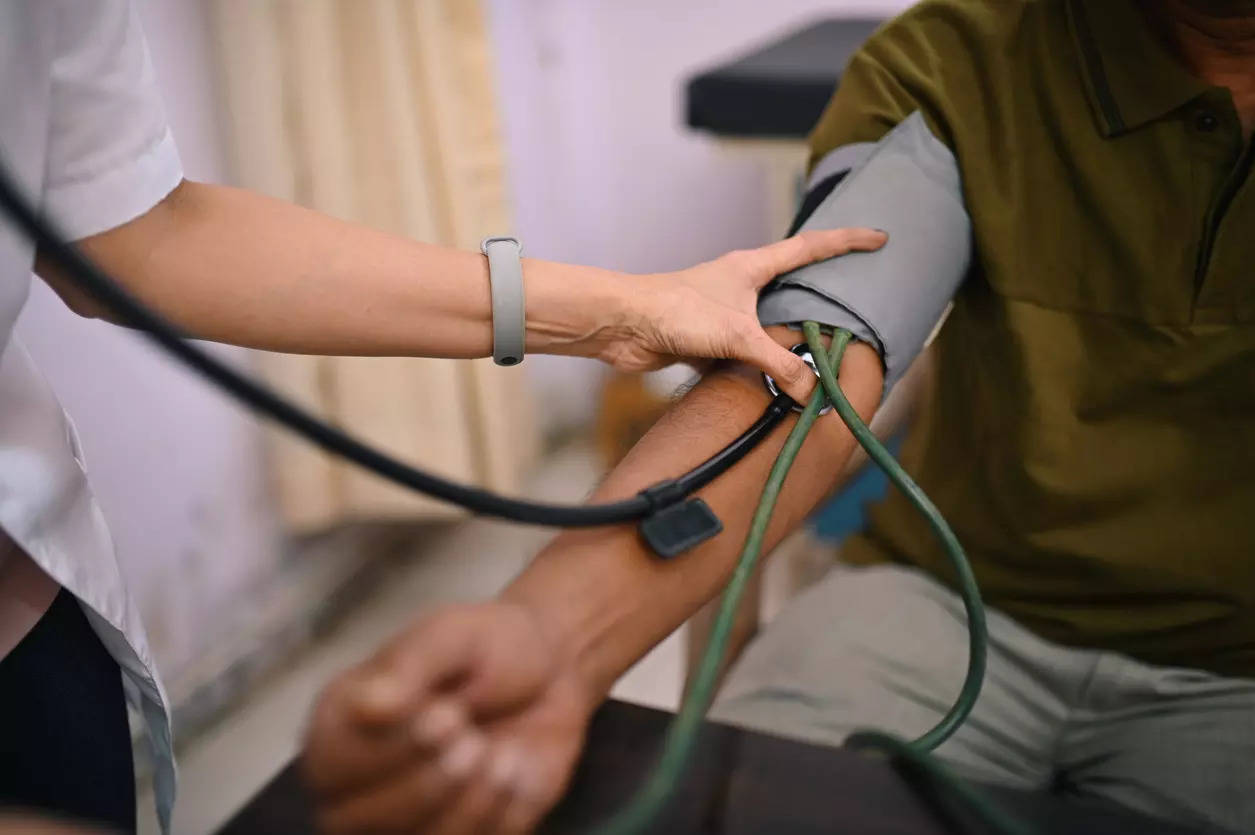
Mumbai: Hypertension, often termed as “silent killer” by World Health Organization (WHO), has emerged as a critical public health challenge worldwide. With its insidious onset and strong association with cardiovascular diseases, strokes, and renal complications, hypertension poses a substantial burden. A cross-sectional study conducted at a leading tertiary care medical institute in Mumbai sheds light on the alarming prevalence of hypertension among young MBBS students and highlights actionable insights for intervention.
Key Highlights of the Study
The research, led by Aditya Saran, a 3rd-Year MBBS Student in H.B.T. Medical College and Dr. R. N. Cooper Municipal General Hospital, Mumbai, targeted 250 MBBS students aged 18–24 years. It aimed to estimate the prevalence of hypertension, identify associated risk factors, and propose strategies for early detection and prevention. The findings are eye-opening, with significant implications for medical education and public health.
Prevalence and Demographics:
Hypertension Prevalence: The study revealed that 25.2per cent of students were hypertensive (>140/90 mm of Hg), with 22per cent classified as Stage I (>140/90 mm of Hg) and 3.2per cent as Stage II (>160/100 mm of Hg) hypertension. Alarmingly, 53.6per cent of hypertensive individuals were unaware of their condition.
Pre-Hypertension: An additional 32.4per cent of students exhibited pre-hypertensive blood pressure levels (>120/80 mm of Hg), indicating a high-risk population that requires close monitoring.
Gender Disparity: Hypertension was more prevalent among male students (36.8per cent) compared to females (0.1per cent).
Risk Factors and Associations: The study highlighted several statistically significant correlations with hypertension, underscoring the complex interplay of lifestyle, genetics, and environmental factors.
Lifestyle and Dietary Habits:
Addictions: Alcohol and tobacco use were reported by 34.4per cent of participants. These habits significantly increased the odds of hypertension.
Diet: Frequent consumption of fast food emerged as a critical risk factor. Students consuming fast food more than thrice weekly were significantly more likely to develop hypertension.
Obesity and Body Composition:
Abdominal Obesity: Nearly half (47.6per cent) of the participants exhibited abdominal obesity, a strong predictor of hypertension.
Body Mass Index (BMI): While 20per cent of participants were overweight and 1.6per cent were obese, the study did not find a direct correlation between BMI and hypertension.
Family History and Stress:
Genetic Predisposition: A family history of hypertension was reported by 46.8per cent of participants, emphasizing the importance of early screening in at-risk populations.
Academic Pressure: The demanding nature of medical education, characterized by long hours, insufficient sleep, and high stress, likely exacerbates the risk.
Comparative Analysis:
This research aligns with similar studies across India while providing a unique focus on Western India, a region previously underrepresented in hypertension research among medical students. Comparisons with studies from Karnataka, West Bengal, and Uttar Pradesh highlight regional variations in hypertension prevalence and risk factors. For instance, the prevalence of pre-hypertension (32.4per cent) in this study is consistent with findings by Reshi et al. (33.3per cent) in Karnataka.
However, the higher rates of Stage I and II hypertension suggest an escalating trend, potentially linked to lifestyle changes and academic stress.
Clinical and Public Health Implications:
This study underscores the urgent need for targeted interventions to combat hypertension among young adults, particularly in high-stress environments like medical colleges.
Proposed Interventions:
1. Regular Screening: Routine blood pressure monitoring from the age of 18 can facilitate early detection and timely intervention.
2. Lifestyle Modifications: Initiatives to promote healthy eating, physical activity, and stress management should be integrated into medical curricula.
3. Awareness Campaigns: Educational programs can empower students to recognize early symptoms and adopt preventive measures.
Conclusion:
The findings of this study reveal a high prevalence of hypertension and pre-hypertension among young MBBS students in Mumbai, driven by modifiable risk factors such as diet, obesity, and lifestyle habits. By addressing these challenges through targeted interventions and public health strategies, we can mitigate the long-term impact of hypertension on this vulnerable population.
As future healthcare providers, MBBS students must prioritize their own health to serve as role models for their patients. This research serves as a call to action for educators, policymakers, and healthcare professionals to create supportive environments that foster both academic excellence and holistic well-being.
This article is written by Aditya Bhakta Saran, 3rd-Year MBBS Student, Hinduhridaysamrat Balasaheb Thackeray Medical College and Dr. R. N. Cooper Municipal General Hospital, Mumbai.
(DISCLAIMER: The views expressed are solely of the author and ETHealthworld.com does not necessarily subscribe to it. ETHealthworld.com shall not be responsible for any damage caused to any person/organisation directly or indirectly)






